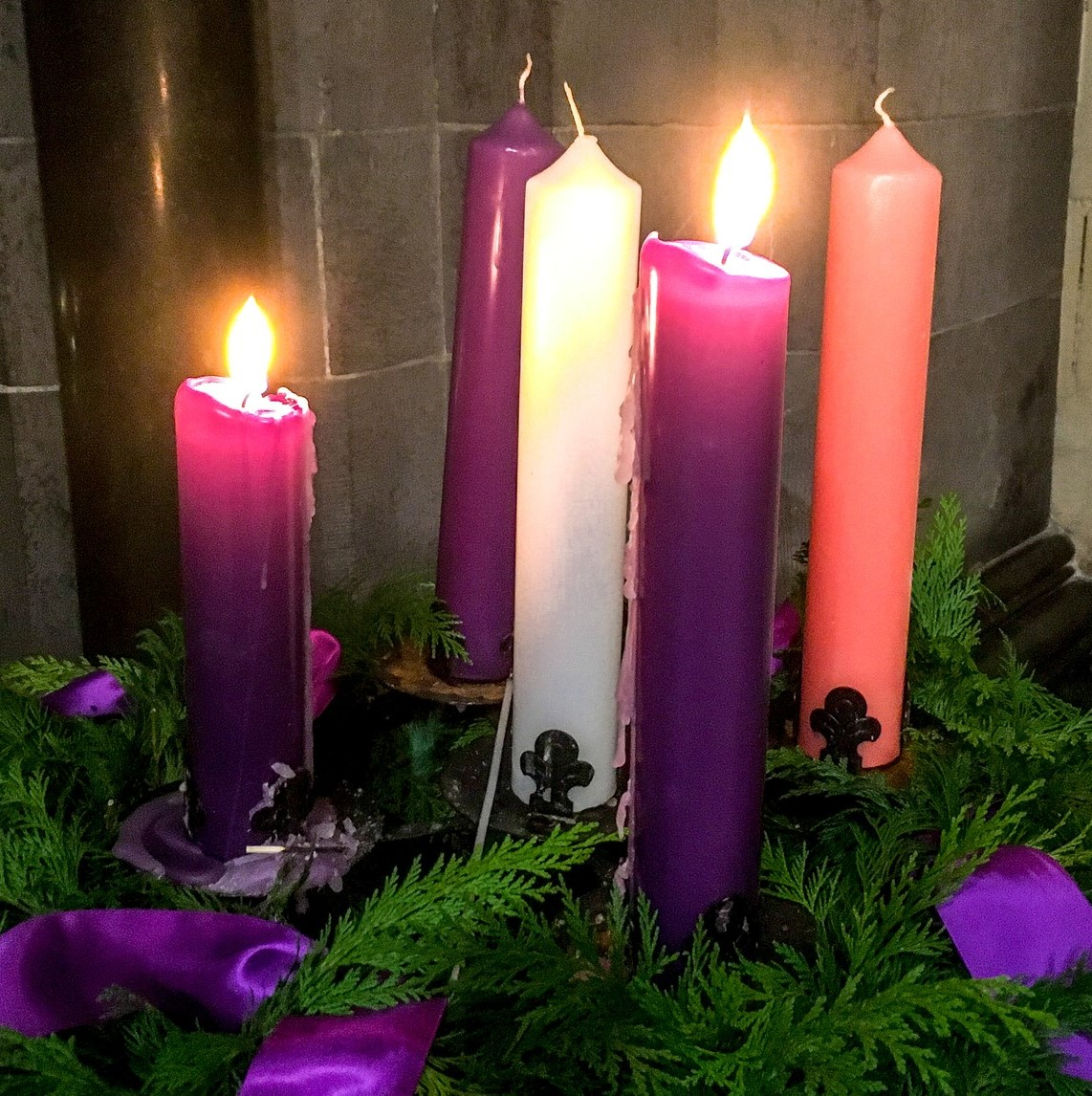
Eighteen years ago, my 49-year-old husband died, very suddenly, while he was traveling. December 9, 2004 is a date that can conjure up so many memories and emotions, even now. During Advent that year I settled in to wait for the coming of the Christ in a way I had never done before. I was deeply sad, overwrought, and yet I was moving each day closer to the celebration of Christmas and the birth of the hope of the world.
Perhaps one of the most contentious discussions (arguments, disagreements, angry exchanges) in today’s churches centers around whether to sing Christmas carols during Advent.* I am just as impatient for the Christmas celebration as the next person. As I write this, I am so eager for the twinkling lights and drapes of greenery that will surely appear before the Thanksgiving meal leftovers are gone. But, even though I am ready to test my own lights and find the best garland, my heart is holding back.
Holding back, because this season of waiting is laden with not only the excitement of sharing this year’s Christmas with my 3-year-old grandson and the last expectant days of waiting for the birth of my third grandchild, but because it is also full of heavy memories and a small measure of melancholy. Advent makes room for both the joy and the growing darkness of the season.
One way I think we might linger in the ambivalence of Advent is to raise our voices in singing the songs that are designated for the season. There are so many good ones! The year my husband died I listened to a collection of music that comes from the community at Iona in Scotland, “God Comes Tomorrow.” It is music that asks us to stay in Advent until Christmas comes…tomorrow.
The New Century Hymnal, published in 1995 by The Pilgrim Press has 23 Advent hymns, almost enough for the entire season, that hold us back, stretch our ability to wait, and teach us such good theology.
In this season of waiting, the lyrics of these hymns remind us that the Good News of God’s breaking into the world is for all of creation; that the baby was himself a counter cultural message—the savior was not the “usual” military and political hero, but one who entered the human experience fully; that the prophets had spoken words many generations before Christ that offered hope and comfort then and again to us now. The yearning for hope, peace, joy, and love does not go away from year to year. Our human condition holds mourning and fear, brokenness and the inability to mend our own hearts. But when we sing of the need for comfort for “those whose hearts are shrouded,” or how we might see ourselves as the ones to whom the Christ Child comes, or challenge ourselves to watch, ever vigilant, for the signs of God’s realm among us, we are declaring our belief in the all-powerful God who will change the world in ways we can’t foresee. We find kinship with a young pregnant woman who sang praises when words failed, and we imagine a young father desperate to find shelter. We share in all that humanity and we find courage and fortitude to live each day of waiting.
When the waiting is over, when the baby is born, and that good news is shared, we keep singing, of joy and glory and rejoicing. And out of that glorious release we gain strength to live as people of God, empowered and filled with passion for living a life to which God calls.
May it be so.
*And I am so very aware of the counter point that, since our children don’t generally sing sacred Christmas songs in school these days, if we wait until Christmas to do so, many children will not get a chance, especially if they travel at Christmas.


